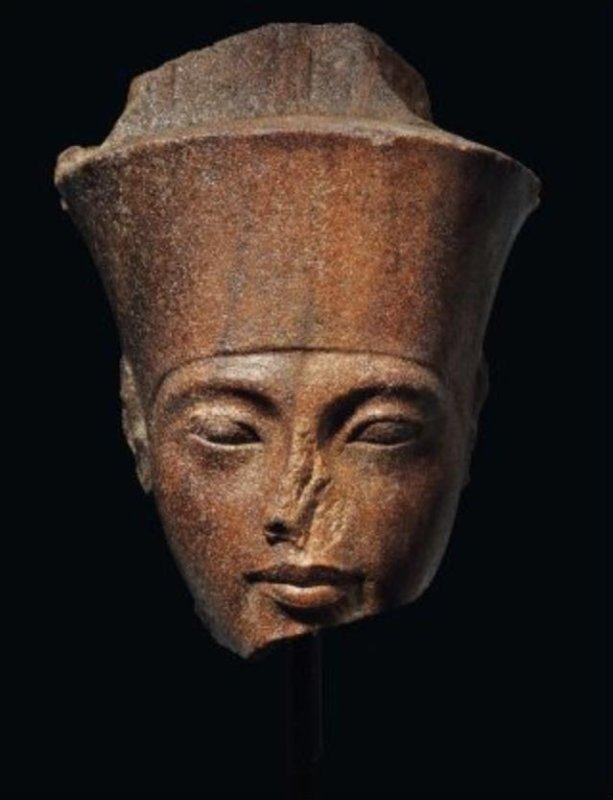The quartzite statue of King Tutankhamun dates to between 1332 to 1323 B.C. File Photo courtesy of Christie's
June 11 (UPI) -- Egyptian officials have asked Christie's auction house in London to forgo the sale of a statue of Tutankhamun, saying it was stolen from Egypt and should be returned.
Christie's is planning to auction the more-than 3,000-year-old bust of the boy pharaoh on July 4 for an estimated $5 million. But Egypt's foreign and antiquities ministries have taken issue with the plan.
"The antiquities ministry has contacted the auction house and UNESCO to stop the procedures of selling the ancient artifact as well as demanding that [Christie's] provide the documents of the artifact's ownership," the foreign ministry said.
"In addition, Egypt claims its right in the piece under the current and previous Egyptian laws."
Egypt passed a law in 1983 saying that ancient artifacts from the country are considered property of the state with the exception of any items that have proven ownership or possession prior to the passage of the law.
The statue is being sold by a private collector. Christie's said a Munich-based dealer, Heinz Herzer, acquired the statue in 1985. Before that, it was acquired by Austrian dealer Joseph Messina in the mid-1970s and before that, it was owned by Prinz Wilhelm von Thurn und Taxis, who had it since the 1960s.
"It is hugely important to establish recent ownership and legal right to sell which we have clearly done," Christie's said. "We would not offer for sale any object where there was concern over ownership or export.
"Ancient objects by their nature cannot be traced over millennia," the auction house.
Mostafa Waziri, the head of Egypt's supreme council for antiquities, said he's trying to stop the auction. The ministry has asked Christie's to either prove the statue's ownership or to return it to Egypt.
"I don't think Christie's has the papers to show it left Egypt legally; it's impossible," Zahi Hawass, the former minister of antiquities," told Britain's The Telegraph. "Christie's has no evidence at all to prove that, and therefore it should be returned to Egypt."















